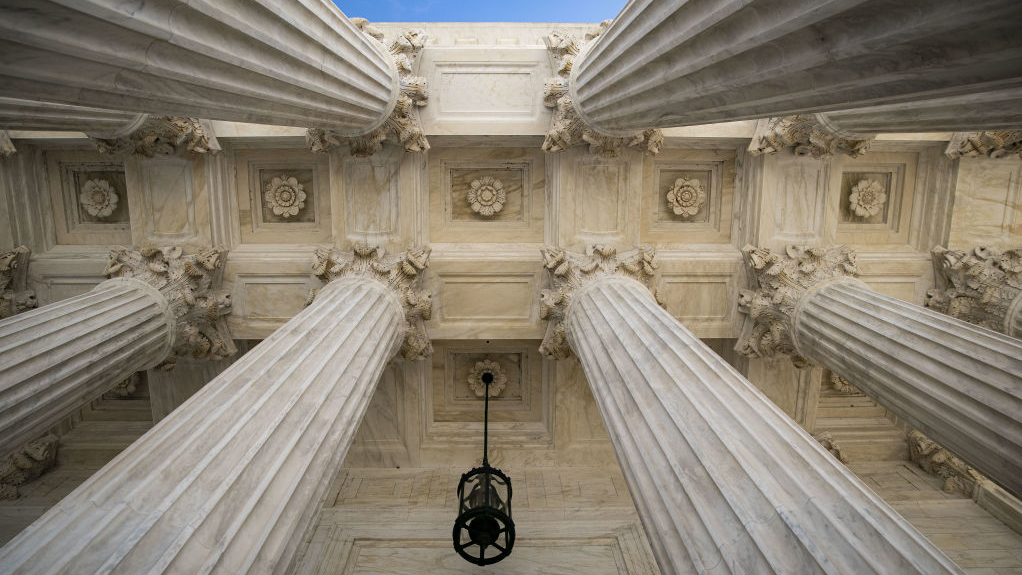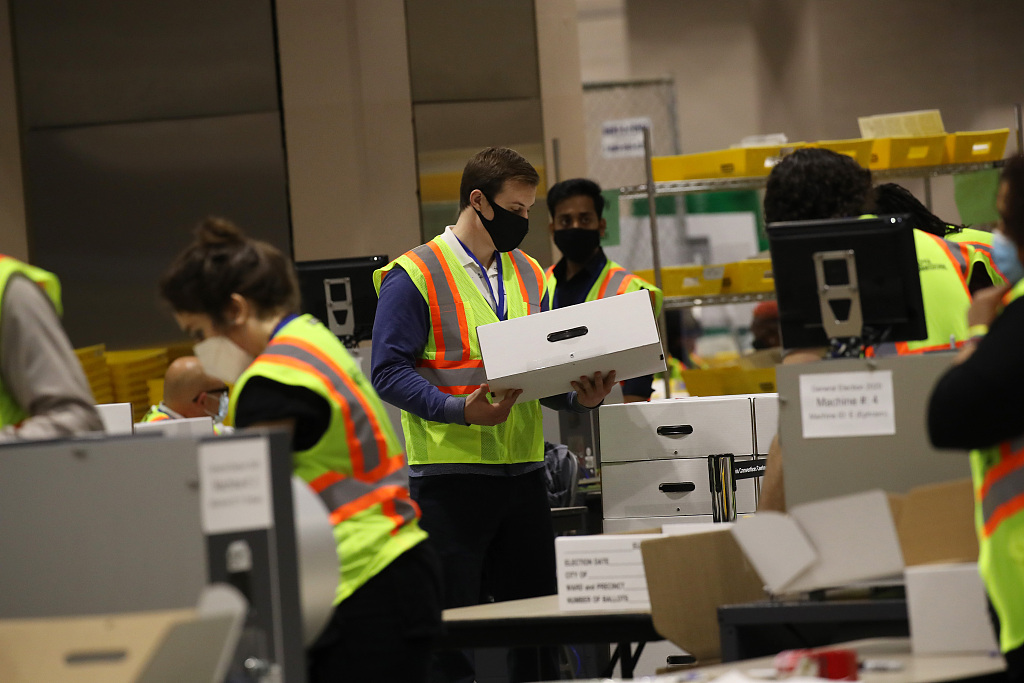
The U.S. Supreme Court in Washington, D.C., U.S., October 23, 2020. /Getty
The U.S. Supreme Court in Washington, D.C., U.S., October 23, 2020. /Getty
Editor's note: Kong Qingjiang is the dean of the School of International Law, China University of Political Science and Law. The article reflects the author's views and not necessarily those of CGTN.
For outsiders, perhaps even for the American voters, it looks bizarre that while votes are still being tallied in Pennsylvania, Wisconsin and Michigan, the incumbent, President Donald Trump, called for a halt to vote counting in his remarks at the White House.
Trump asserted election "fraud," and pledged to mount legal challenges to official state results. For many people, his call for an end to vote counting that is underway around the country amounted to a chilling threat to their beloved American democracy.
It is even more difficult to understand that with millions of votes yet to be counted, Trump claimed victory in the presidential election.
In the meantime, his Democratic challenger, Joe Biden, insisted that it is not over until every vote is counted. He said, "We believe we're on track to win this election" and pleaded for patience.
Trump's victory claim seemed to be premature in that he claimed to have won several states that are still counting ballots, including Georgia, North Carolina and Pennsylvania.
Moreover, more than 100 million Americans voted early or by post, suggesting a record turnout. Indeed, it may take days or even weeks to finish the counting.
It remains unclear whether the candidate of either side will admit his defeat and his supporters will then be willing to accept the result for which they have whipped up support.
The bitterly contested race is a result of the divided American society. Since the Donald Trump came to power, American society has become even more polarized.

Workers count ballots after Election Day in Philadelphia, Pennsylvania, U.S., November 4, 2020. /Getty
Workers count ballots after Election Day in Philadelphia, Pennsylvania, U.S., November 4, 2020. /Getty
In today's poisoned political environment, Republican and Democratic partisans have staked their positions on the key issues, and debate does little to persuade them.
As a matter of fact, an increasing number of voters have gone extreme and even become victims to the identity politics. As a result, a mild and moderate political consensus has been fractured and become a political luxury.
The uncertainty surrounding the result of the U.S. presidential election could lead to political gridlock.
In this context, it is not unlikely that the U.S. Supreme Court has to step in to decide who has won the presidency.
That being the case, a democratic election will dwindle into a legal battle in the court.
Ironically, even the highest court seems to be grilled by the partisan divide. With the new appointment of the judge Amy Coney Barrett, for the Republican Party, this is a political victory comparable to that in a presidential election; the court has become dominated by pro-Republican judges.
Her swift nomination by President Donald Trump and confirmation by the Senate with the Republican as the majority were widely believed to be a triumphant step in the political games on the part of the Republican Party and the conservatives in general.
It is unknown yet whether Donald Trump will make a request to the Supreme Court for an end to the vote counting. It is even more intriguing how the court would handle the political skirmish if the request were to be made as Trump pledged.
(If you want to contribute and have specific expertise, please contact us at opinions@cgtn.com.)